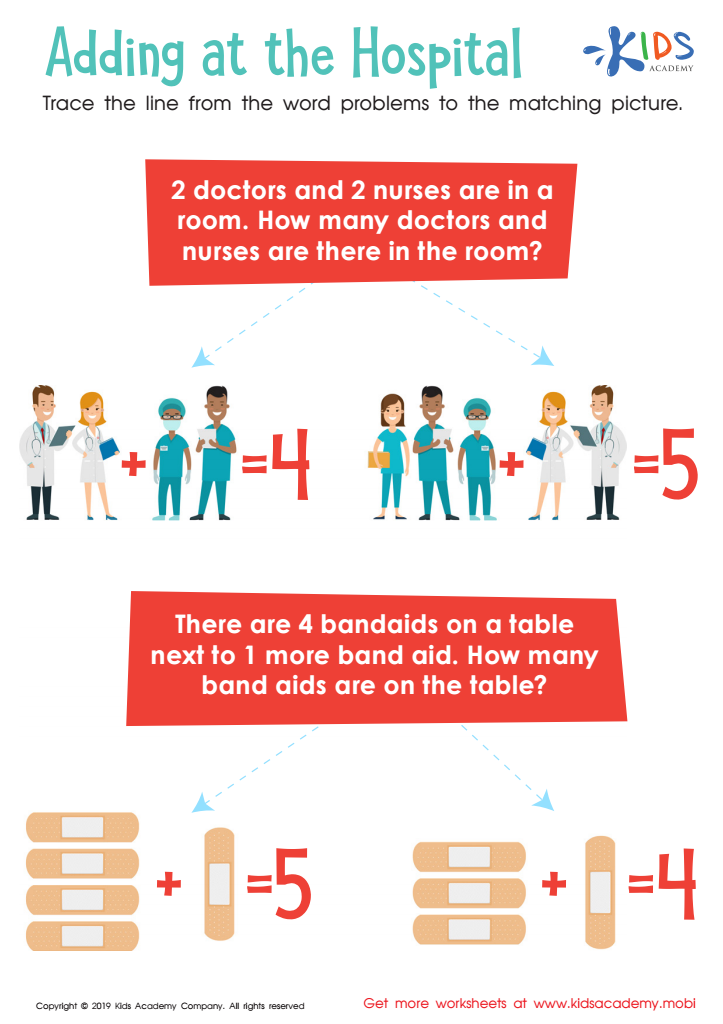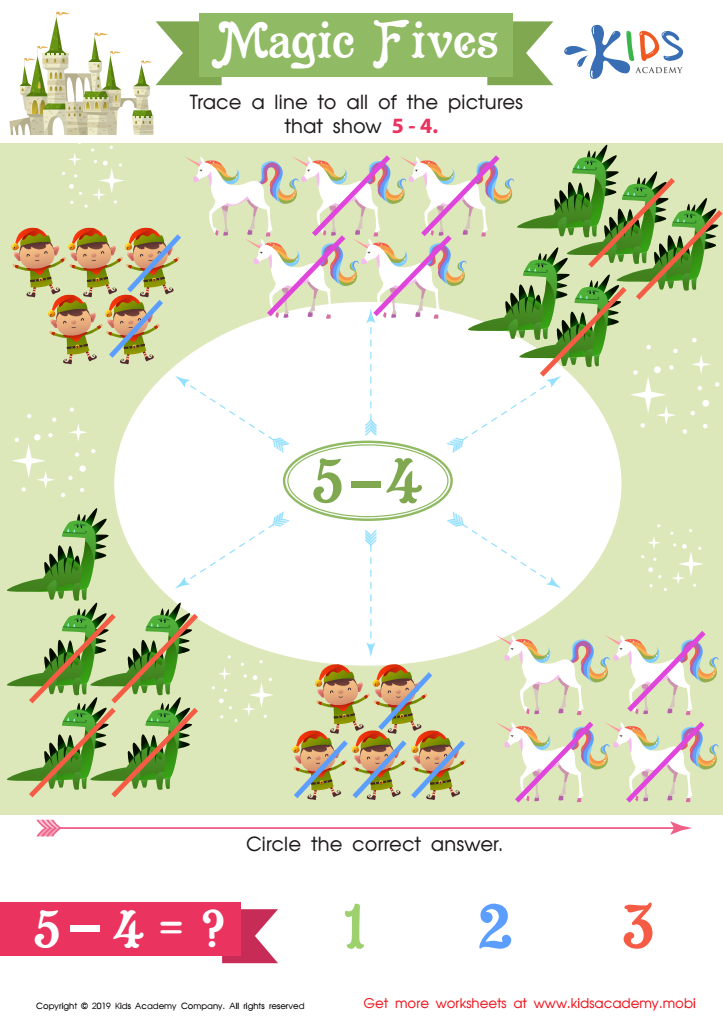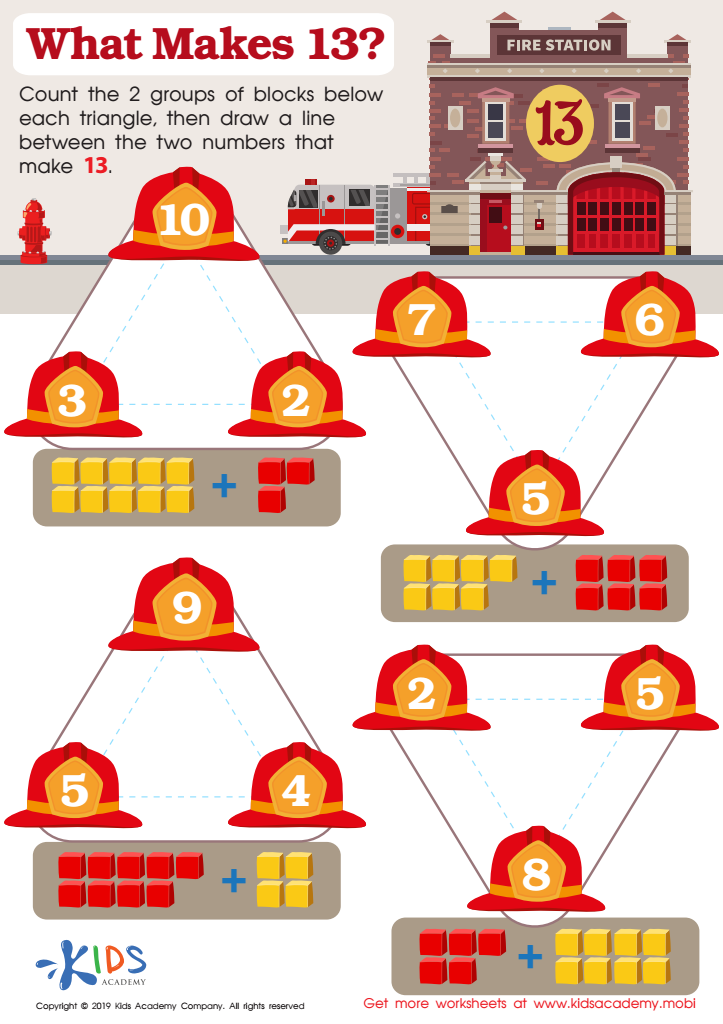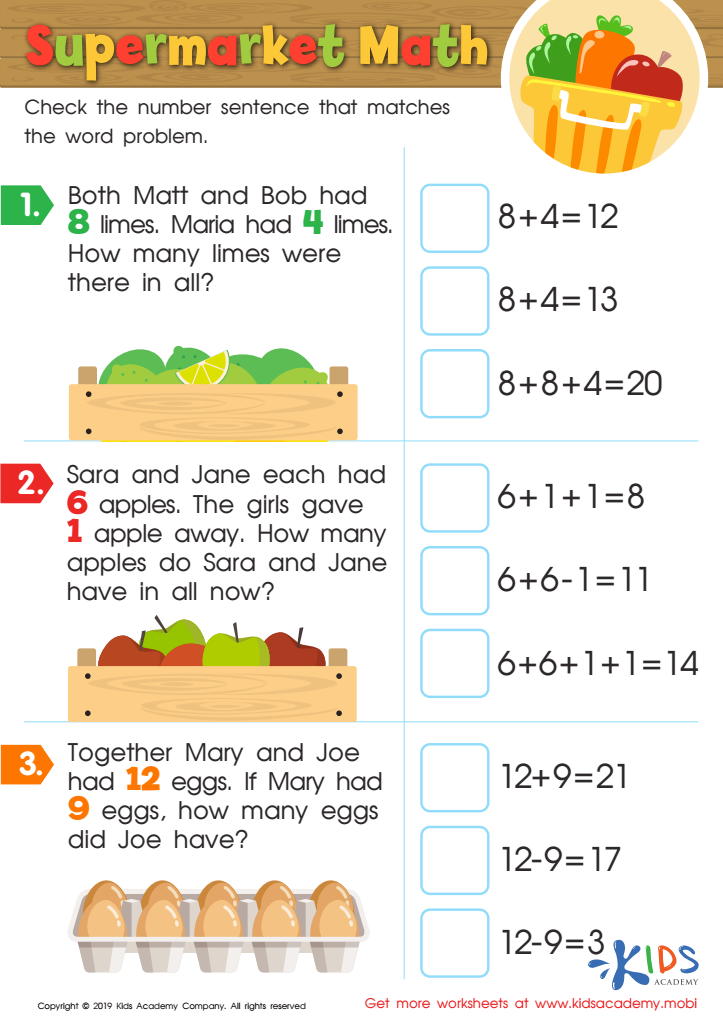Addition skills Normal Addition & Subtraction Worksheets for Ages 4-5
6 filtered results
-
From - To
Enhance your child's math foundation with our "Normal Addition & Subtraction Worksheets for Ages 4-5". Specifically designed for young learners, these engaging worksheets introduce basic addition and subtraction concepts through playful activities and colorful visuals. Perfect for preschoolers and kindergarteners, each worksheet boosts numeric confidence, problem-solving prowess, and critical thinking skills. By incorporating fun exercises, children develop core mathematical abilities while enjoying the learning process. Ideal for home practice or classroom use, our worksheets ensure a solid start in mathematics. Give your child the head start they deserve with our expertly crafted addition and subtraction resources.


7 Continents and 7 Seas Worksheet


Adding Flower Petals Worksheet


Adding at the Hospital Worksheet


Magic Fives Worksheet


What Makes 13 Worksheet


Supermarket Math Worksheet
Developing addition and subtraction skills in children ages 4-5 is fundamental for their cognitive and academic growth. During this early stage, children are naturally curious and rapidly developing their basic mathematical understanding, which forms the core foundation for future learning. Proficiency in these basic arithmetic skills enhances a child's problem-solving abilities, helps them understand the concepts of quantity and number relationships, and builds a strong base for more complex mathematical operations.
From a cognitive perspective, engaging with addition and subtraction exercises promotes critical thinking, reasoning skills, and the ability to make connections between numbers. This not only bolsters overall intelligence but also aids in the development of executive functions like attention, memory, and the ability to process information sequentially.
Furthermore, achieving early competence in these skills can foster a positive attitude towards math, helping children approach numerical challenges with confidence rather than apprehension. This early encounter with success in mathematics can build self-esteem and motivate them to embrace future educational opportunities enthusiastically.
Lastly, for parents and teachers, monitoring and supporting these skills allows for the identification and early intervention of potential learning difficulties, ensuring that children receive timely assistance and nurturing their development in a guided, supportive manner. This holistic foundation is crucial for their continued academic success and lifelong learning journey.
 Assign to My Students
Assign to My Students















